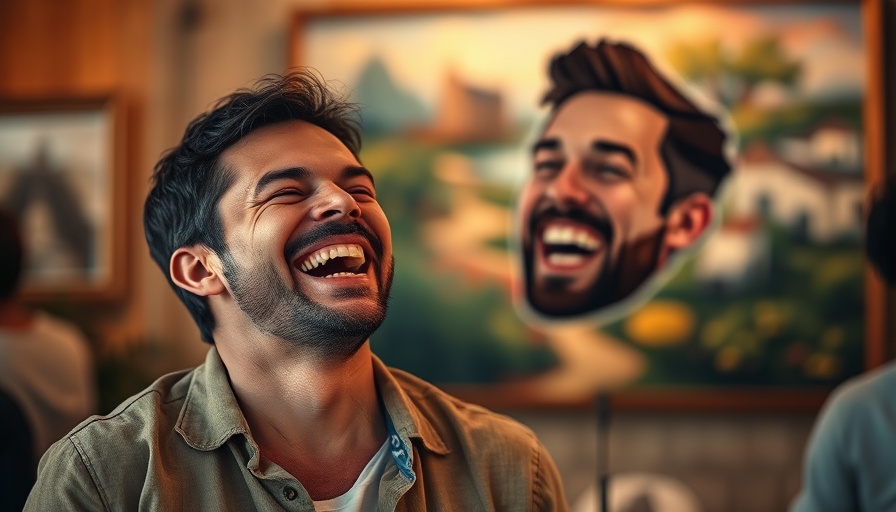
The Surprising Science Behind Makeup and Attractiveness
In a world increasingly obsessed with beauty standards and appearance, the conversation around makeup extends beyond aesthetics—it drifts into the psychological realm of biases and perceptions. Recent studies illuminate that the amount of makeup perceived as most attractive often reflects deep-seated societal biases rather than individual preferences.
Are We Evaluating Beauty Fairly?
Research suggests that there is a peculiar bias when it comes to makeup application. Individuals often assume that heavier makeup application aligns with attractiveness. However, this phenomenon shifts drastically across different cultures and demographics. In many Western societies, individuals may view moderate to heavy makeup as a sign of social status or confidence. Contrarily, in other societies, a more natural look is celebrated, revealing that our perceptions of beauty are highly conditional and culturally constructed.
Psychological Impact of Makeup on Mental Health
The nexus between makeup and mental health is profound. For many, wearing makeup can act as a confidence boost, a form of self-care that not only enhances outer beauty but influences inner emotional states. Yet, for others, reliance on makeup can underpin issues related to anxiety disorders, particularly social anxiety and generalized anxiety disorder. Individuals grappling with these mental health challenges may feel heightened pressure to adhere to beauty norms, leading to increased vulnerability to negative self-perceptions when they choose not to wear makeup.
Social Media's Role in Shaping Beauty Standards
Platforms like Instagram and TikTok have become pivotal in reinforcing specific beauty standards that often involve heavy makeup. The relentless exposure to idealized beauty can exacerbate feelings of inadequacy among users, particularly the youth and vulnerable populations concerned with their appearance. This phenomenon manifests as increased levels of stress, depression, and various mental health issues stemming from the pressure to conform to an often unrealistic beauty narrative.
Understanding the Link Between Beauty and Anxiety
Understanding how makeup relates to various mental health challenges, such as anxiety, is essential. Anxiety can manifest in self-consciousness about appearance, further fueling a cycle where individuals may rely on makeup as a shield against societal judgment. Addressing this issue is crucial for mental health professionals, as it ties directly into broader discussions about body image, self-esteem, and coping strategies.
Rethinking Our Beauty Ideals
Introducing educational programs and supportive counseling can help individuals navigate their feelings towards beauty and makeup. Discussions around mental health awareness and stigma reduction should similarly encompass the cultural narratives surrounding makeup use. This comprehensive approach can help in developing healthier relationships with beauty standards, reducing the burden on those affected by workplace anxiety and social pressures.
What Can You Do?
For anyone feeling overwhelmed by beauty standards, embracing a mindset focused on self-care and individuality is key. Engage in relaxation techniques like mindfulness or art therapy to explore your relationship with your appearance and identity. Tools like anxiety management apps can also provide resources for maintaining mental health in a beauty-centric society.
The Takeaway
As we dissect the various layers of beauty standards and their cultural implications, it becomes clear that the makeup we wear—or choose not to wear—extends far beyond aesthetic appeal. It’s intertwined with our mental health, societal pressures, and how we perceive ourselves and one another. By fostering a more inclusive dialogue about beauty and mental wellness, we can work towards reducing stigma and building resilience in our communities.
 Add Row
Add Row  Add
Add 




Write A Comment